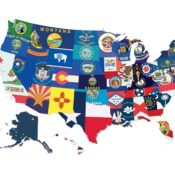In 1992, Archie Karas, a waiter, headed out to Las Vegas. By 1995, he had turned $50 into $40 million in what has become known as the biggest winning streak in gambling history. Most of us would call it an instance of great luck. The cold-hearted statistician would laugh at our superstitious notions and instead describe a series of chance processes that happened to work out for Karas. In the larger landscape, where randomness reigns, anything can happen at any given casino. Calling its beneficiaries lucky is simply sticking a label on it after the fact.
To investigate luck is to take on one of the grandest of all questions: How can we explain what happens to us, and whether we will be winners, losers, or somewhere in the middle at love, work, sports, gambling, and life overall? As it turns out, new findings suggest that luck is not a phenomenon that appears exclusively in hindsight. Nor is it an expression of our desire to see patterns where none exist.
Instead, studies show, luck can be powered by past good or bad luck, personality, and, in a meta-twist, even our own ideas and beliefs about luck itself. Lucky streaks are real. We really can make our own luck, though we don’t like to think of ourselves as lucky. Luck can be a force, but it’s one we interact with, shape, and cultivate. Luck helps determine our fate here on Earth, even if you think its ultimate cause divine.
This is an excerpt of the article featured in the May/June 2018 issue of The Saturday Evening Post. Subscribe to the magazine for more art, inspiring stories, fiction, humor, and features from our archives.
This article was originally published by Aeon Media, a digital magazine for ideas and culture. Follow them on Twitter at @aeonmag.
Become a Saturday Evening Post member and enjoy unlimited access. Subscribe now



